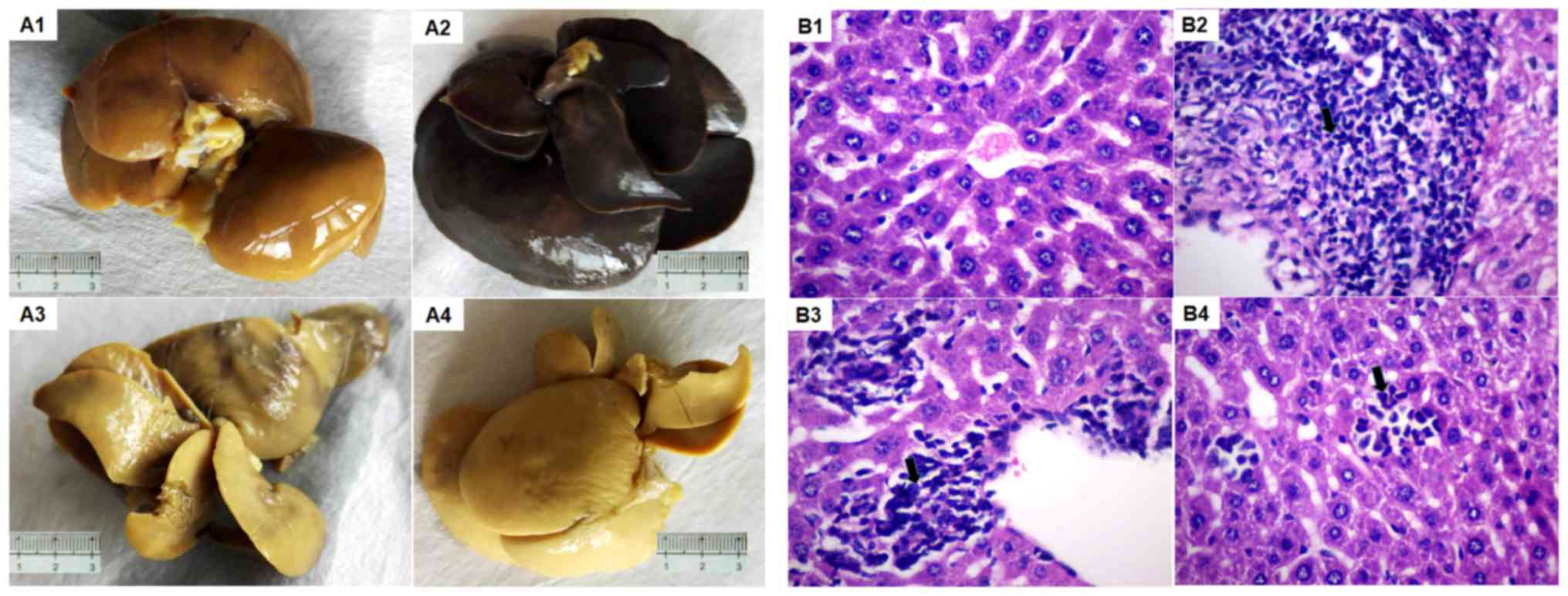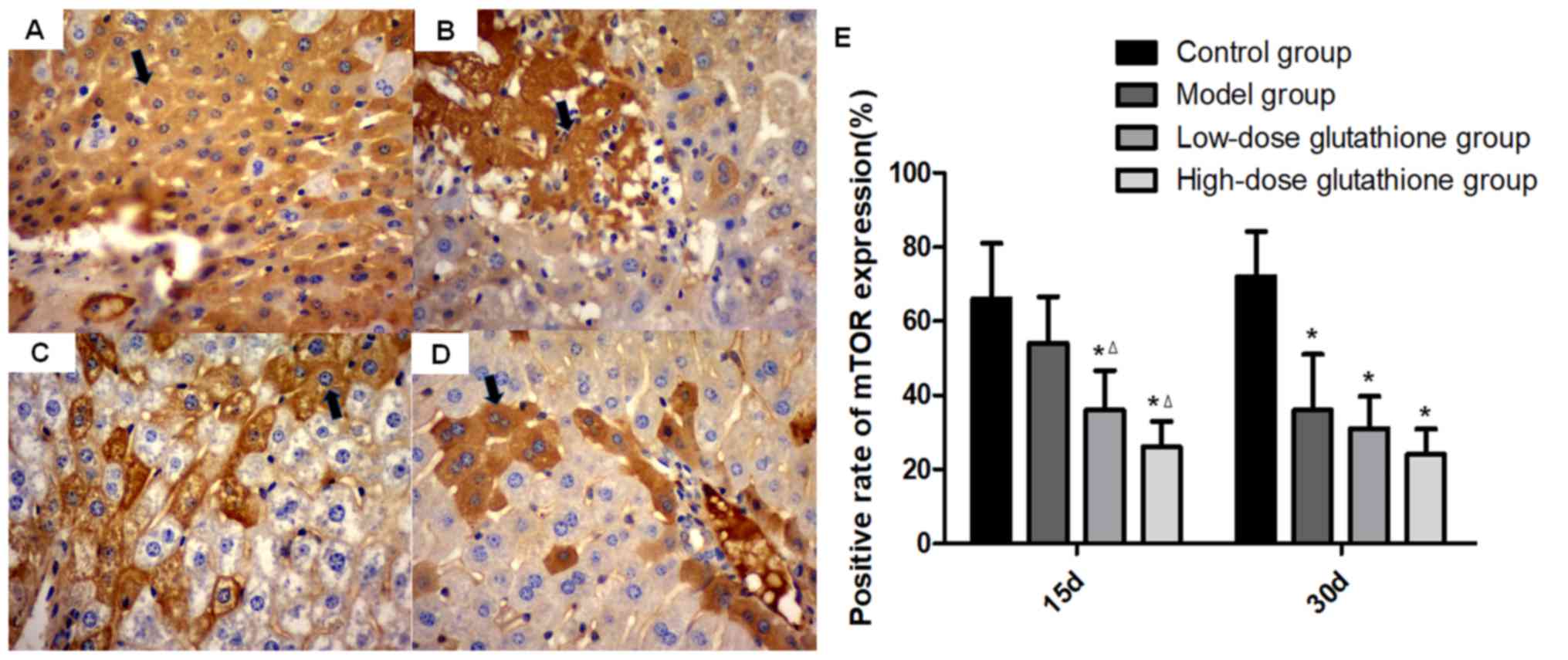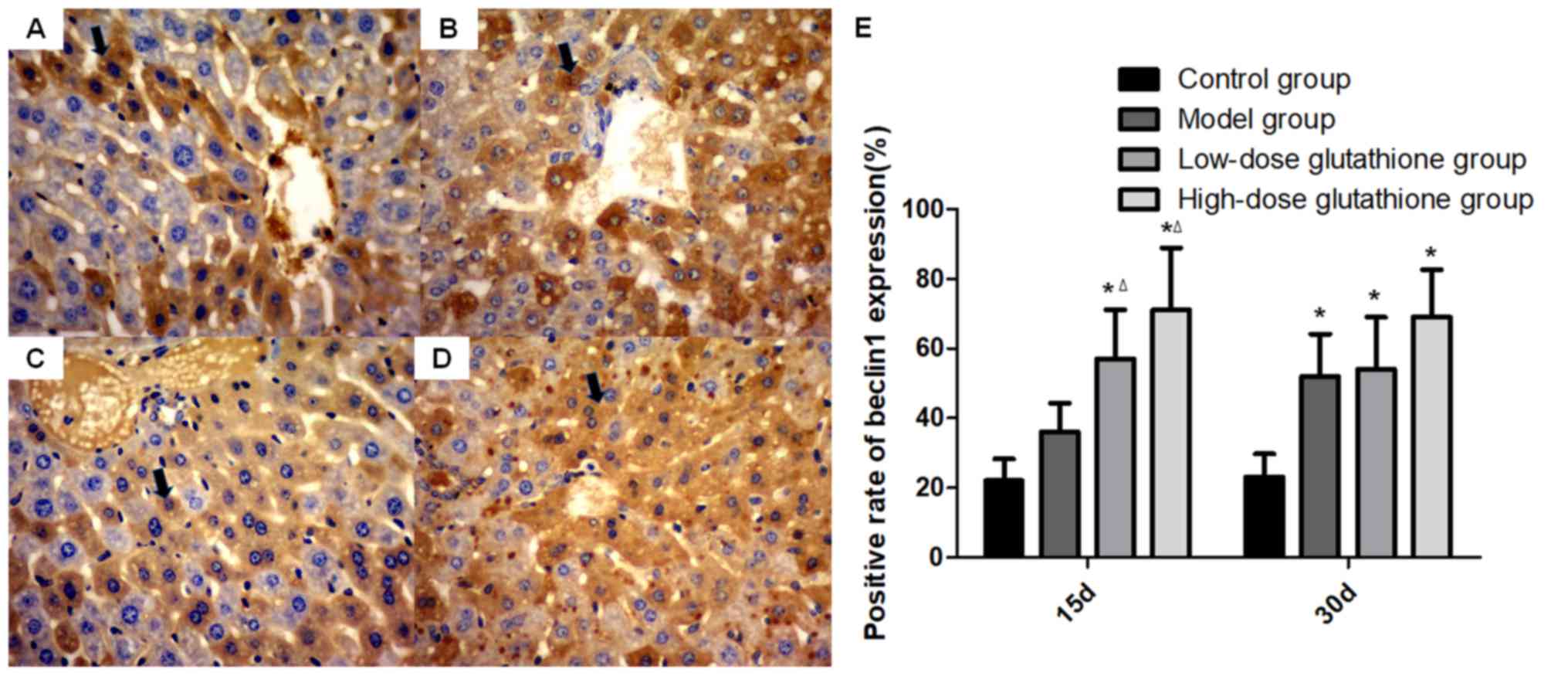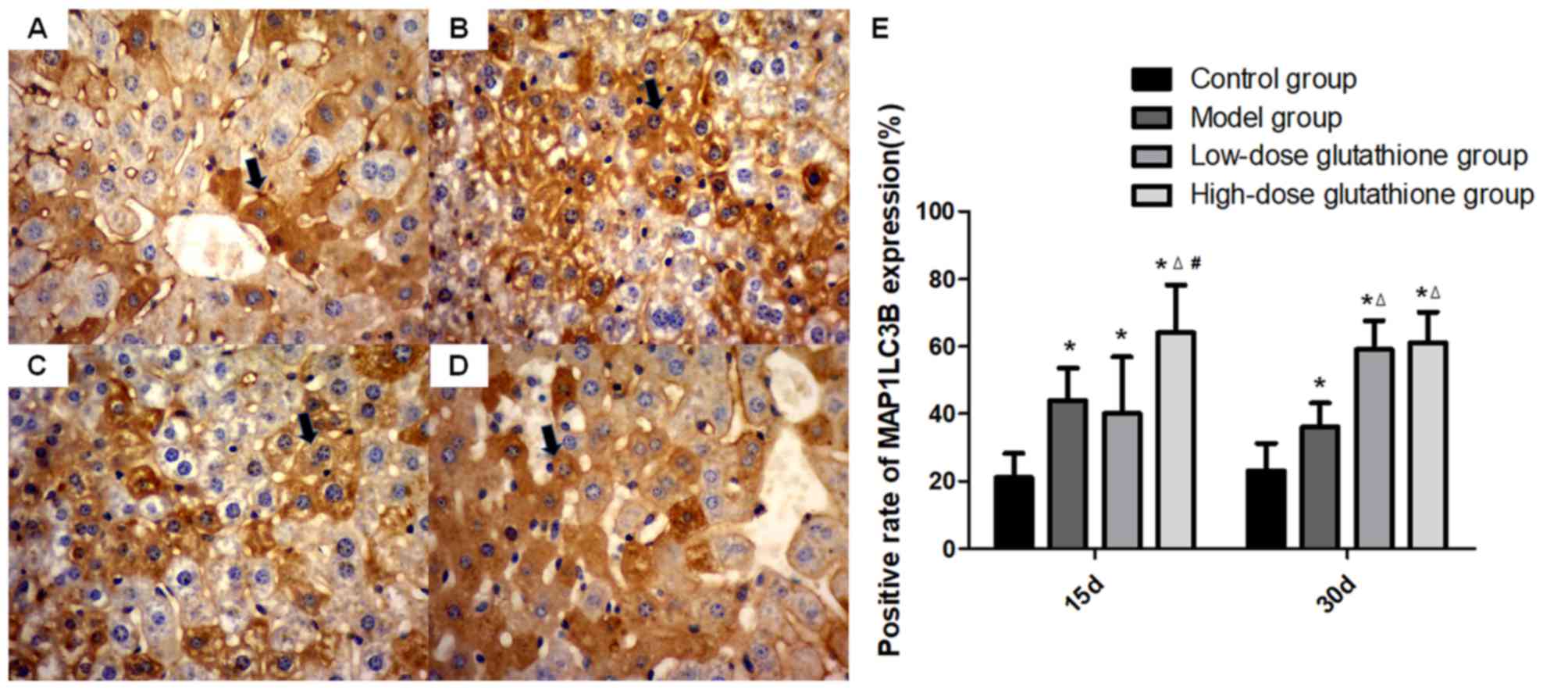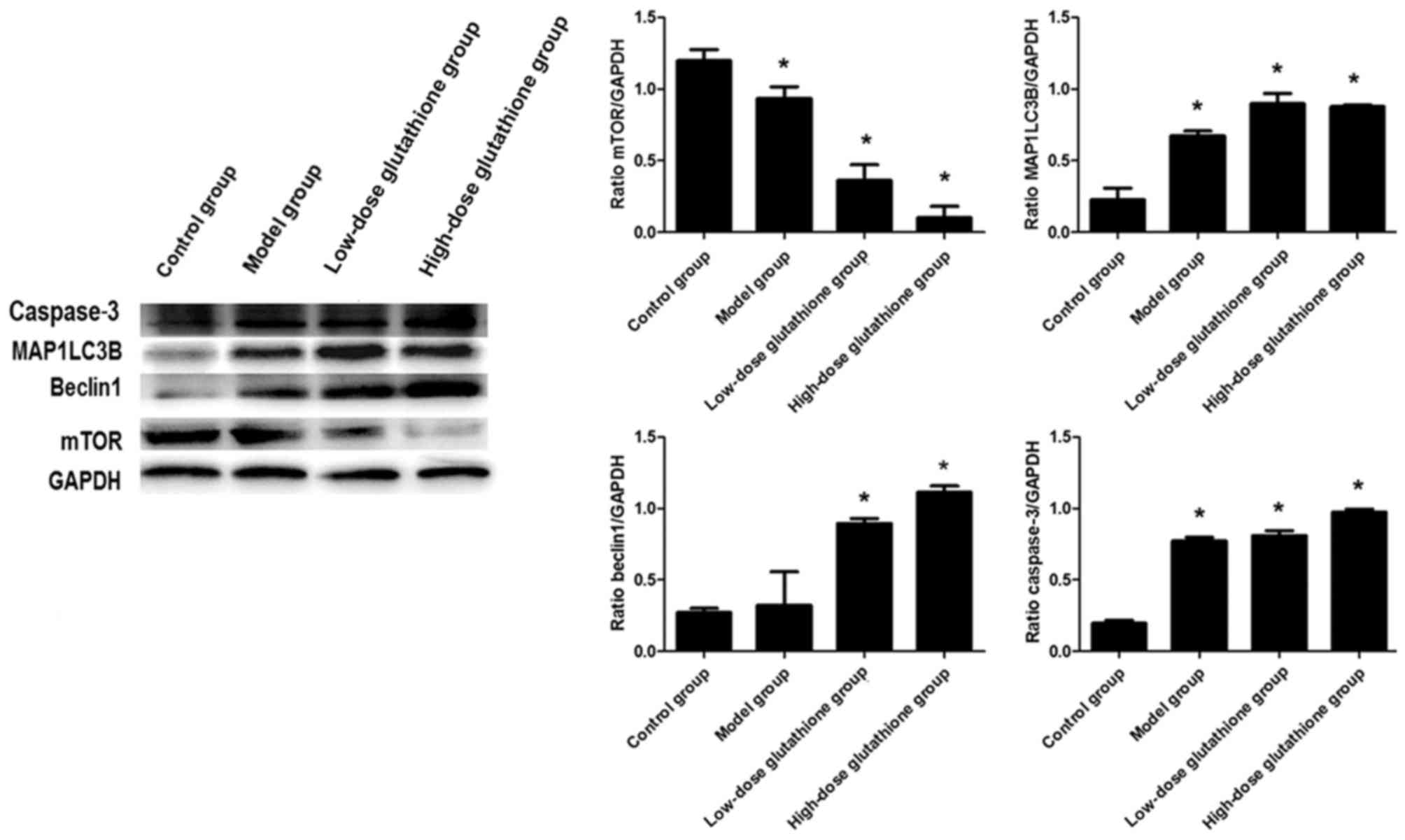|
1
|
Gupta PC and Warnakulasuriya S: Global
epidemiology of areca nut usage. Addict Biol. 7:77–83. 2002.
View Article : Google Scholar : PubMed/NCBI
|
|
2
|
Chu NS: Effects of betel chewing on the
central and autonomic nervous system. J Biomed Sci. 8:229–236.
2001. View Article : Google Scholar : PubMed/NCBI
|
|
3
|
Niu X, Li W, Xu H, Liu X and Qi L:
Simultaneous quantification of 11 isoquinoline alkaloids in
Corydalis impatiens (Pall.) Fisch by HPLC. J Sep Sci. 36:2090–2095.
2013. View Article : Google Scholar : PubMed/NCBI
|
|
4
|
Warnakulasuriya S, Trivedy C and Peters
TJ: Areca nut use: An independent risk factor for oral cancer. BMJ.
324:799–800. 2002. View Article : Google Scholar : PubMed/NCBI
|
|
5
|
Green PW, Simmonds MS and Blaney WM:
Toxicity and behavioural effects of diet-borne alkaloids on larvae
of the black blowfly, Phormia regina. Med Vet Entomol. 16:157–160.
2002. View Article : Google Scholar : PubMed/NCBI
|
|
6
|
Shan LM and Wang H: Pharmacological
characteristics of the endothelial target for acetylcholine induced
vascular relaxation. Life Sci. 70:1285–1298. 2002. View Article : Google Scholar : PubMed/NCBI
|
|
7
|
Ellinger-Ziegelbauer H, Stuart B, Wahle B,
Bomann W and Ahr HJ: Characteristic expression profiles induced by
genotoxic carcinogens in rat liver. Toxicol Sci. 77:19–34. 2004.
View Article : Google Scholar : PubMed/NCBI
|
|
8
|
Lin KH, Lin CY, Liu CC, Chou MY and Lin
JK: Arecoline N-oxide: Its mutagenicity and possible role as
ultimate carcinogen in areca oral carcinogenesis. J Agric Food
Chem. 59:3420–3428. 2011. View Article : Google Scholar : PubMed/NCBI
|
|
9
|
Chou WW, Gun JY, Tsai JF, Hwang CC, Chen
HC, Huang JS, Yang YL, Hung WC and Chuang LY: Arecoline-induced
growth arrest and p21WAF1 expression are dependent on p53 in rat
hepatocytes Toxicology. 243:1–10. 2008.PubMed/NCBI
|
|
10
|
Zhou J, Sun Q, Yang Z and Zhang J: The
hepatotoxicity and testicular toxicity induced by arecoline in mice
and protective effects of vitamins C and E. Korean J Physiol
Pharmacol. 18:143–148. 2014. View Article : Google Scholar : PubMed/NCBI
|
|
11
|
Dasgupta R, Saha I, Pal S, Bhattacharyya
A, Sa G, Nag TC, Das T and Maiti BR: Immunosuppression,
hepatotoxicity and depression of antioxidant status by arecoline in
albino mice. Toxicology. 227:94–104. 2006. View Article : Google Scholar : PubMed/NCBI
|
|
12
|
Cheng HL, Su SJ, Huang LW, Hsieh BS, Hu
YC, Hung TC and Chang KL: Arecoline induces HA22T/VGH hepatoma
cells to undergo anoikis-involvement of STAT3 and RhoA activation.
Mol Cancer. 9:1262010. View Article : Google Scholar : PubMed/NCBI
|
|
13
|
Kang SW, Haydar G, Taniane C, Farrell G,
Arias IM, Lippincott-Schwartz J and Fu D: AMPK activation prevents
and reverses drug-induced mitochondrial and hepatocyte injury by
promoting mitochondrial fusion and function. PLoS One.
11:e01656382016. View Article : Google Scholar : PubMed/NCBI
|
|
14
|
Yoshimori T: Autophagy: A regulated bulk
degradation process inside cells. Biochem Biophys Res Commun.
313:453–458. 2004. View Article : Google Scholar : PubMed/NCBI
|
|
15
|
Lozy F and Karantza V: Autophagy and
cancer cell metabolism. Semin Cell Dev Biol. 23:395–401. 2012.
View Article : Google Scholar : PubMed/NCBI
|
|
16
|
Zhong R, Xu H, Chen G, Zhao G, Gao Y, Liu
X, Ma S and Dong L: The role of hypoxia-inducible factor-1α in
radiation-induced autophagic cell death in breast cancer cells.
Tumor Biol. 36:7077–7083. 2015. View Article : Google Scholar
|
|
17
|
Weng J, Wang C, Wang Y, Tang H, Liang J,
Liu X, Huang H and Hou J: Beclin1 inhibits proliferation, migration
and invasion in tongue squamous cell carcinoma cell lines. Oral
Oncol. 50:983–990. 2014. View Article : Google Scholar : PubMed/NCBI
|
|
18
|
Kang C and Avery L: Death-associated
protein kinase (DAPK) and signal transduction: Fine-tuning of
autophagy in Caenorhabditis elegans homeostasis. FEBS J. 277:66–73.
2010. View Article : Google Scholar : PubMed/NCBI
|
|
19
|
Nicklin P, Bergman P, Zhang B,
Triantafellow E, Wang H, Nyfeler B, Yang H, Hild M, Kung C, Wilson
C, et al: Bidirectional transport of amino acids regulates mTOR and
autophagy. Cell. 136:521–534. 2009. View Article : Google Scholar : PubMed/NCBI
|
|
20
|
Kabeya Y, Mizushima N, Ueno T, Yamamoto A,
Kirisako T, Noda T, Kominami E, Ohsumi Y and Yoshimori T: LC3, a
mammalian homologue of yeast Apg8p, is localized in autophagosome
membranes after processing. EMBO J. 19:5720–5728. 2000. View Article : Google Scholar : PubMed/NCBI
|
|
21
|
Wang X, Wang PY, Zhu YH and Li S:
Correlation between autophagy related genes expression and clinical
features in carcinogenesis of oral squamous cell carcinoma. Int J
Clin Exp Pathol. 9:6307–6316. 2016.
|
|
22
|
Yoshioka A, Miyata H, Doki Y, Yamasaki M,
Sohma I, Gotoh K, Takiguchi S, Fujiwara Y, Uchiyama Y and Monden M:
LC3, an autophagosome marker, is highly expressed in
gastrointestinal cancers. Int J Oncol. 33:461–468. 2008.PubMed/NCBI
|
|
23
|
Dunning S, Rehman Ur A, Tiebosch MH,
Hannivoort RA, Haijer FW, Woudenberg J, van den Heuvel FA,
Buist-Homan M, Faber KN and Moshage H: Glutathione and antioxidant
enzymes serve complementary roles in protecting activated hepatic
stellate cells against hydrogen peroxide-induced cell death.
Biochim Biophys Acta. 1832:2027–2034. 2013. View Article : Google Scholar : PubMed/NCBI
|
|
24
|
Wang X, Sun K, Xiao CY, Li SN, Tian YP and
Wang CY: Effect of autophagy on glutathione protecting against
arecoline-induced hepatic injury. Chin J Clin Exp Pathol.
6:660–664. 2016.(In Chinese).
|
|
25
|
Saha I, Chatterjee A, Mondal A, Maiti BR
and Chatterji U: Arecoline augments cellular proliferation in the
prostate gland of male Wistar rats. Toxicol Appl Pharmacol.
255:160–168. 2011. View Article : Google Scholar : PubMed/NCBI
|
|
26
|
Qu XS, Shi H, Cao XL, Dong XF, Li T, Jiao
JJ, Qi JS and Wu MN: Effects of adiponectin on the anxiety and
memory impairment in triple transgenic Alzheimer's disease model
mice. Zhongguo Ying Yong Sheng Li Xue Za Zhi. 33:405–409. 2017.(In
Chinese). PubMed/NCBI
|
|
27
|
Honoré PH, Basnet A, Eljaja L, Kristensen
P, Andersen LM, Neustrup S, Møllgaard P and Bjerrum OJ: Neuropathic
pain models in the development of analgesic drugs. Scand J Pain.
2:172–177. 2017. View Article : Google Scholar
|
|
28
|
Kimura H, Weisz A, Kurashima Y, Hashimoto
K, Ogura T, D'Acquisto F, Addeo R, Makuuchi M and Esumi H: Hypoxia
response element of the human vascular endothelial growth factor
gene mediates transcriptional regulation by nitric oxide: Control
of hypoxia-inducible factor-1 activity by nitric oxide. Blood.
95:189–197. 2000.PubMed/NCBI
|
|
29
|
Giordano C, Rivas J and Zervos X: An
update on treatment of drug-induced liver injury. J Clin Transl
Hepatol. 2:74–79. 2014.PubMed/NCBI
|
|
30
|
Björnsson ES, Bergmann OM, Björnsson HK,
Kvaran RB and Olafsson S: Incidence, presentation, and outcomes in
patients with drug-induced liver injury in the general population
of Iceland. Gastroenterology. 144:1419–1425. 2013. View Article : Google Scholar : PubMed/NCBI
|
|
31
|
Au JS and Pockro PJ: Drug-induced liver
injury from antiepileptic drugs. Clin Liver Dis. 17:687–697. 2013.
View Article : Google Scholar : PubMed/NCBI
|
|
32
|
Yoshikawa Y, Miyashita T, Higuchi S,
Tsuneyama K, Endo S, Tsukui T, Toyoda Y, Fukami T, Nakajima M and
Yokoi T: Mechanisms of the hepatoprotective effects of tamoxifen
against drug-induced and chemical-induced acute liver injuries.
Toxicol Appl Pharmacol. 264:42–50. 2012. View Article : Google Scholar : PubMed/NCBI
|
|
33
|
Eskelinen EL: The dual role of autophagy
in cancer. Curr Opin Pharmacol. 11:294–300. 2011. View Article : Google Scholar : PubMed/NCBI
|
|
34
|
Chen N and Karantza-Wadsworth V: Role and
regulation of autophagy in cancer. Biochim Biophys Acta.
1793:1516–1523. 2009. View Article : Google Scholar : PubMed/NCBI
|
|
35
|
Ding WX, Li M, Chen X, Ni HM, Lin CW, Gao
W, Lu B, Stolz DB, Clemens DL and Yin XM: Autophagy reduces acute
ethanol-induced hepatotoxicity and steatosis in mice.
Gastroenterology. 139:1740–1752. 2010. View Article : Google Scholar : PubMed/NCBI
|
|
36
|
Kan C, Liu A, Fang H, Dirsch O, Dahmen U
and Boettcher M: Induction of autophagy reduces
ischemia/reperfusion injury in steatotic rat livers. J Surg Res.
216:207–218. 2017. View Article : Google Scholar : PubMed/NCBI
|
|
37
|
Wu G, Yang Q, Yu Y, Lin S, Feng Y, Lv Q,
Yang J and Hu J: taurine inhibits kupffer cells activation induced
by lipopolysaccharide in alcoholic liver damaged rats. Adv Exp Med
Biol. 975:789–800. 2017. View Article : Google Scholar : PubMed/NCBI
|
|
38
|
Albanis E and Friedman SL: Antifibrotic
agents for liver disease. Am J Transplant. 6:12–19. 2006.
View Article : Google Scholar : PubMed/NCBI
|
|
39
|
Chen J, Yu Y, Li S, Liu Y, Zhou S, Cao S,
Yin J and Li G: MicroRNA-30a ameliorates hepatic fibrosis by
inhibiting Beclin1-mediated autophagy. J Cell Mol Med.
21:3679–3692. 2017. View Article : Google Scholar : PubMed/NCBI
|
|
40
|
Mao YQ and Fan XM: Autophagy: A new
therapeutic target for liver fibrosis. World J Hepatol.
7:1982–1986. 2015. View Article : Google Scholar : PubMed/NCBI
|
|
41
|
Chaturvedi P, Vaishampayan SS, Nair S,
Nair D, Agarwal JP, Kane SV, Pawar P and Datta S: Oral squamous
cell carcinoma arising in background of oral submucous fibrosis: A
clinicopathologically distinct disease. Head Neck. 35:1404–1409.
2013.PubMed/NCBI
|
|
42
|
Mehrotra D and Kumar S, Agarwal GG,
Asthana A and Kumar S: Odds ratio of risk factors for oral
submucous fibrosis in a case control model. Br J Oral Maxillofac
Surg. 51:e169–e173. 2013. View Article : Google Scholar : PubMed/NCBI
|
|
43
|
Thangjam GS and Kondaiah P: Regulation of
oxidative-stress responsive genes by arecoline in human
keratinocytes. J Periodontal Res. 44:673–682. 2009. View Article : Google Scholar : PubMed/NCBI
|
|
44
|
Yen CY, Lin MH, Liu SY, Chiang WF, Hsieh
WF, Cheng YC, Hsu KC and Liu YC: Arecoline-mediated inhibition of
AMP-activated protein kinase through reactive oxygen species is
required for apoptosis induction. Oral Oncol. 47:345–351. 2011.
View Article : Google Scholar : PubMed/NCBI
|
|
45
|
McAuliffe PF, Meric-Bernstam F, Mills GB
and Gonzalez-Angulo AM: Deciphering the role of PI3K/Akt/mTOR
pathway in breast cancer biology and pathogenesis. Clin Breast
Cancer. 10 Suppl 3:S59–S65. 2010. View Article : Google Scholar : PubMed/NCBI
|
|
46
|
Wang RC, Wei Y, An Z, Zou Z, Xiao G,
Bhagat G, White M, Reichelt J and Levine B: Akt-mediated regulation
of autophagy and tumorigenesis through Beclin 1 phosphorylation.
Science. 338:956–959. 2012. View Article : Google Scholar : PubMed/NCBI
|
|
47
|
Kang R, Zeh HJ, Lotze MT and Tang D: The
Beclin1 network regulates autophagy and apoptosis. Cell Death
Differ. 18:571–580. 2011. View Article : Google Scholar : PubMed/NCBI
|
|
48
|
Menon S, Dibble CC, Talbott G, Hoxhaj G,
Valvezan AJ, Takahashi H, Cantley LC and Manning BD: Spatial
control of the TSC complex integrates insulin and nutrient
regulation of mTORC1 at the lysosome. Cell. 156:771–785. 2014.
View Article : Google Scholar : PubMed/NCBI
|
|
49
|
Cursio R, Colosetti P and Gugenheim J:
Autophagy and liver ischemia-reperfusion injury. Biomed Res Int.
2015:4175902015. View Article : Google Scholar : PubMed/NCBI
|
|
50
|
Wang JH, Ahn IS, Fischer TD, Byeon JI,
Dunn WA Jr, Behrns KE, Leeuwenburgh C and Kim JS: Autophagy
suppresses age-dependent ischemia and reperfusion injury in livers
of mice. Gastroenterology. 141(2188–2199): e62011.PubMed/NCBI
|
|
51
|
Betsuyaku T, Eid N, Ito Y, Tanaka Y,
Otsuki Y and Kondo Y: Ethanol enhances thymocyte apoptosis and
autophagy in macrophages of rat thymi. Histol Histopathol.
32:963–975. 2017.PubMed/NCBI
|
|
52
|
Ni HM, Boggess N, McGill MR, Lebofsky M,
Borude P, Apte U, Jaeschke H and Ding WX: Liver-specific loss of
Atg5 causes persistent activation of Nrf2 and protects against
acetaminophen-induced liver injury. Toxicol Sci. 127:438–450. 2012.
View Article : Google Scholar : PubMed/NCBI
|
|
53
|
Fang H, Liu A, Dahmen U and Dirsch O: Dual
role of chloroquine in liver ischemia reperfusion injury: Reduction
of liver damage in early phase, but aggravation in late phase. Cell
Death Dis. 4:e6942013. View Article : Google Scholar : PubMed/NCBI
|
|
54
|
Ni HM, Bockus A, Boggess N, Jaeschke H and
Ding WX: Activation of autophagy protects against
acetaminophen-induced hepatotoxicity. Hepatology. 55:222–232. 2012.
View Article : Google Scholar : PubMed/NCBI
|
|
55
|
Patterson TA and Kosh JW: Elucidation of
the rapid in vivo metabolism of arecoline. Gen Pharmacol.
24:641–647. 1993. View Article : Google Scholar : PubMed/NCBI
|
|
56
|
Jung CH, Ro SH, Cao J, Otto NM and Kim DH:
mTOR regulation of autophagy. FEBS Lett. 584:1287–1295. 2010.
View Article : Google Scholar : PubMed/NCBI
|
|
57
|
Codogno P, Mehrpour M and Proikas-Cezanne
T: Canonical and non-canonical autophagy: Variations on a common
theme of self-eating? Nat Rev Mol Cell Biol. 13:7–12. 2011.
View Article : Google Scholar : PubMed/NCBI
|
|
58
|
Wang RC, Wei Y, An Z, Zou Z, Xiao G,
Bhagat G, White M, Reichelt J and Levine B: Akt-mediated regulation
of autophagy and tumorigenesis through Beclin 1 phosphorylation.
Science. 338:956–959. 2012. View Article : Google Scholar : PubMed/NCBI
|
|
59
|
Fingar DC, Salama S, Tsou C, Harlow E and
Blenis J: Mammalian cell size is controlled by mTOR and its
downstream targets S6K1 and 4EBP1/eIF4E. Genes Dev. 16:1472–1487.
2002. View Article : Google Scholar : PubMed/NCBI
|
|
60
|
Zhu Y, Zhao L, Liu L, Gao P, Tian W, Wang
X, Jin H, Xu H and Chen Q: Beclin 1 cleavage by caspase-3
inactivates autophagy and promotes apoptosis. Protein Cell.
1:468–477. 2010. View Article : Google Scholar : PubMed/NCBI
|
|
61
|
Huang W, Choi W, Hu W, Mi N, Guo Q, Ma M,
Liu M, Tian Y, Lu P, Wang FL, et al: Crystal structure and
biochemical analyses reveal Beclin 1 as a novel membrane binding
protein. Cell Res. 22:473–489. 2012. View Article : Google Scholar : PubMed/NCBI
|
|
62
|
de Barboza Diaz G, Guizzardi S, Moine L
and de Talamoni Tolosa N: Oxidative stress, antioxidants and
intestinal calcium absorption. World J Gastroenterol. 23:2841–2853.
2017. View Article : Google Scholar : PubMed/NCBI
|
|
63
|
Circu ML and Aw TY: Glutathione and
modulation of cell apoptosis. Biochim Biophys Acta. 1823:1767–1677.
2012. View Article : Google Scholar : PubMed/NCBI
|
















